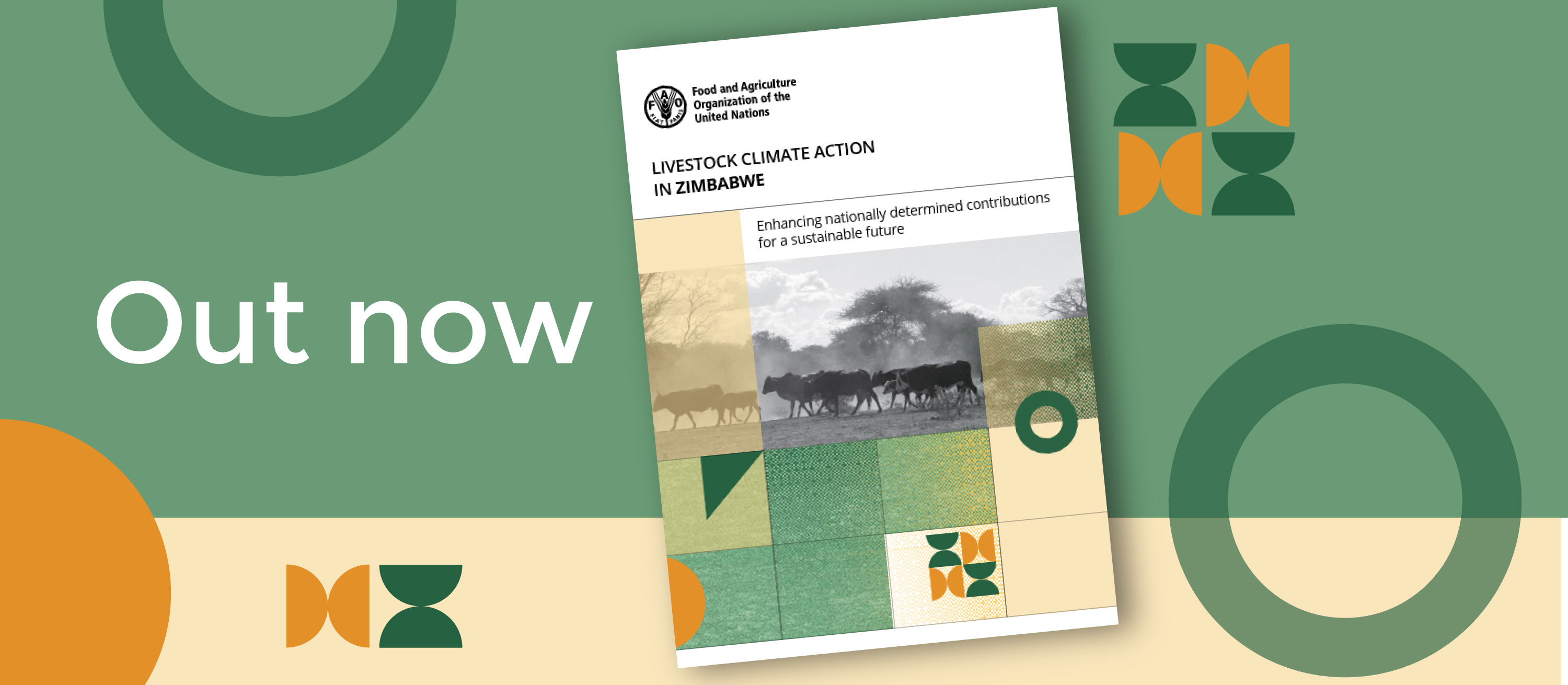Out now: Livestock Climate Action in Zimbabwe
FAO releases a new publication focused on livestock climate action in Zimbabw

Banner
FAO has released a new publication titled "Livestock Climate Action in Zimbabwe – Enhancing Nationally Determined Contributions for a Sustainable Future". The report examines the current status of livestock climate action in Zimbabwe and provides recommendations for future developments. It includes a detailed examination of greenhouse gas (GHG) emission baselines and the policy environment of the country, following a number of technical consultations with livestock and climate stakeholders.
The publication provides an in-depth analysis of the current state of Zimbabwe's livestock sector, highlighting the challenges posed by climate change and the sector's significant contribution to GHG emissions, particularly methane from enteric fermentation and manure management. It identifies gaps, opportunities, and recommendations for aligning livestock sector policies with climate change mitigation and adaptation goals.
Overview
The publication emphasizes the importance of sustainable livestock systems in addressing climate change, poverty, and food insecurity. By targeting climate change within the livestock sector, Zimbabwe can contribute to achieving the Paris Agreement's long-term goals while building more sustainable, resilient, and climate-friendly agrifood systems.
This publication is part of a series of studies on livestock climate action conducted by FAO in various countries, including Burkina Faso and Senegal, and has been produced under the FAO Flexible Voluntary Contribution (FVC) Subprogramme.
The development of this publication was a collaborative effort between FAO and national institutions in Zimbabwe, including the Ministry of Lands, Agriculture, Fisheries, Water and Rural Development; the Ministry of Environment, Climate and Wildlife; and the University of Zimbabwe.
Recommendations
Looking ahead, this publication serves as a critical resource for policymakers, researchers, and national stakeholders committed to strengthening the resilience of Zimbabwe’s livestock sector. It offers strategic insights on mobilizing climate finance and investment, marking an important step toward building a low-emission, climate-resilient livestock industry that drives sustainable development and enhances rural livelihoods. Key recommendations from the new FAO study include:
- Enhancing policy coherence: Strengthening the alignment of livestock policies with national climate change strategies to ensure coherence across sectors.
- Improving data collection: Conducting a comprehensive livestock census and establishing mechanisms for accurate data collection on livestock production systems, herd structures, and manure management practices.
- Expanding stakeholder engagement: Increasing engagement with livestock sector stakeholders, including farmers, the private sector, and local institutions, in climate action planning and policy implementation.
- Supporting research and capacity building: Strengthening research efforts to build an evidence base for climate-smart livestock strategies and providing training for livestock extension staff and stakeholders on data collection, monitoring, and reporting.
FAO will continue to work with the Government of Zimbabwe to implement the findings of this study in line with its revised nationally determined contributions.
Report: https://doi.org/10.4060/cd5043en
News: Enhancing nationally determined contributions in Zimbabwe
Programme: FVC
News: FVC Phase II